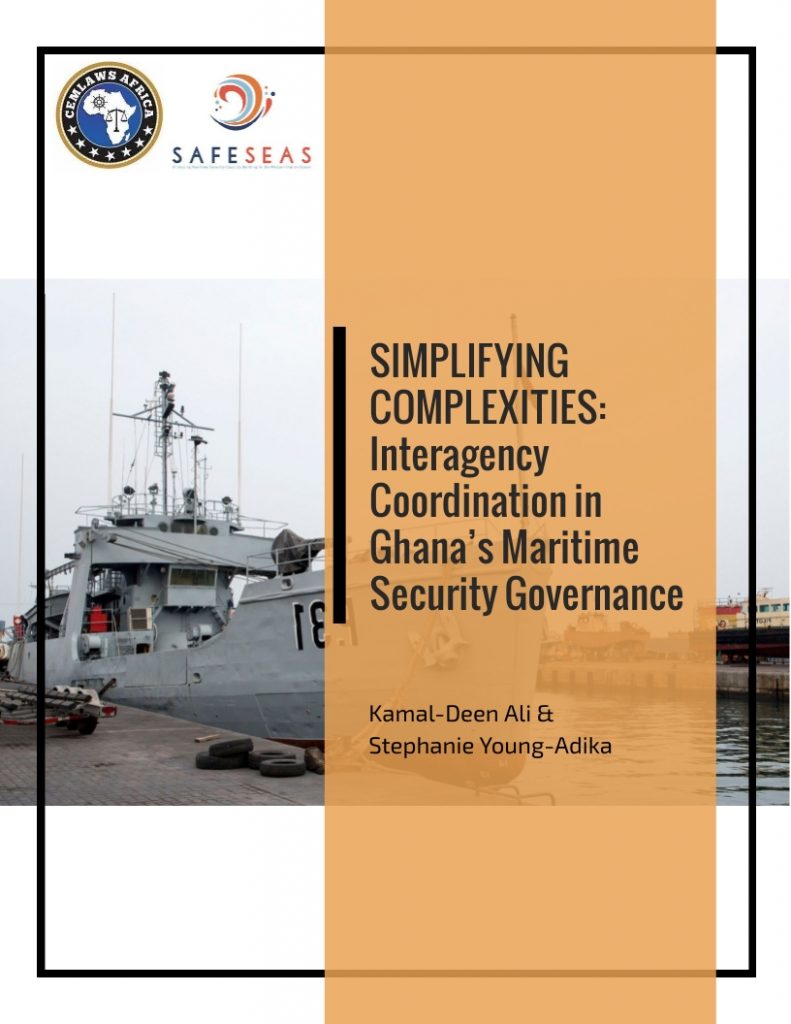
The Gulf of Guinea is a global hotspot for maritime insecurity. The recent surge in piratical attacks in the region, but also the spread of the menace into Ghana’s maritime domain has catapulted the subject of maritime security governance into the public domain. Furthermore, in the past decade, there has been a growing awareness of a host of maritime security issues that chastise Ghana, as well as their implications for the livelihood and well-being of coastal communities. At the same time, there has been reports in the media that have highlighted the country’s fisheries crisis, illegal oil bunkering, and piracy. More recently, thousands of dead fish and over hundred dolphins washed ashore raising questions about the role of Ghana’s security agencies in safeguarding the country’s maritime domain; and whether or not these roles are being executed efficiently.
Ghana’s maritime domain is shaped by a large number of actors and stakeholders with linkages in mandates, roles and primary functions. While such an extensive maritime institutional framework could lead to greater functional or sectoral efficiency through harmonized capacities and shared information, Ghana’s institutional framework suffers from interagency frictions, duplication of efforts and uncoordinated threat responses. The policy paper deals with interagency coordination on Ghana’s maritime security governance. Read more on these issues in the policy paper.

3 thoughts on “Policy brief – “Simplifying Complexities: Interagency Coordination in Ghana’s Maritime Security Governance””
Comments are closed.